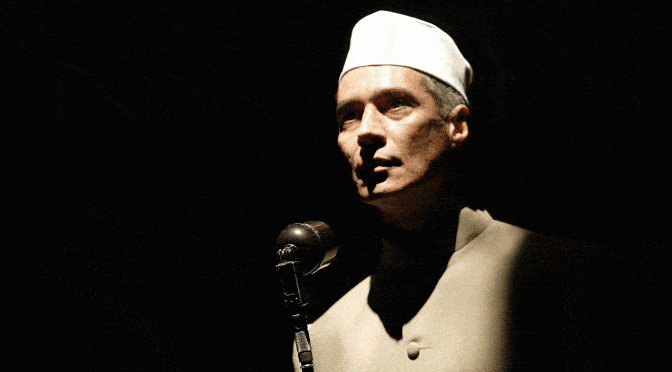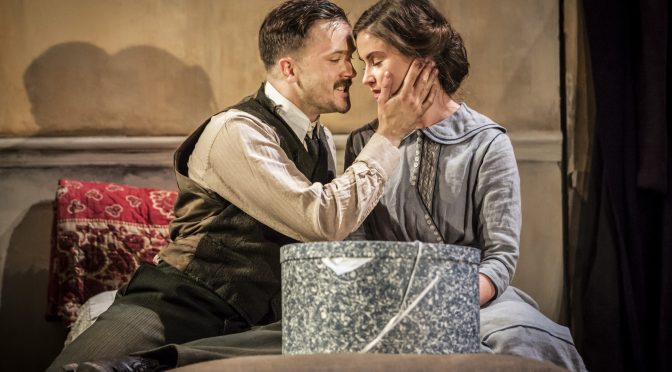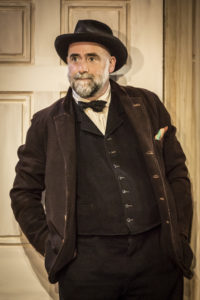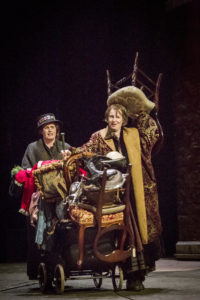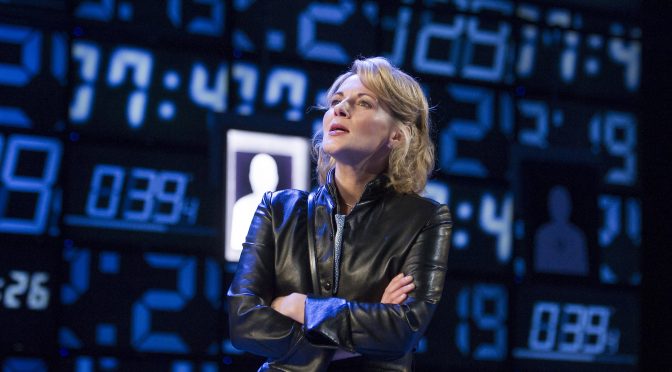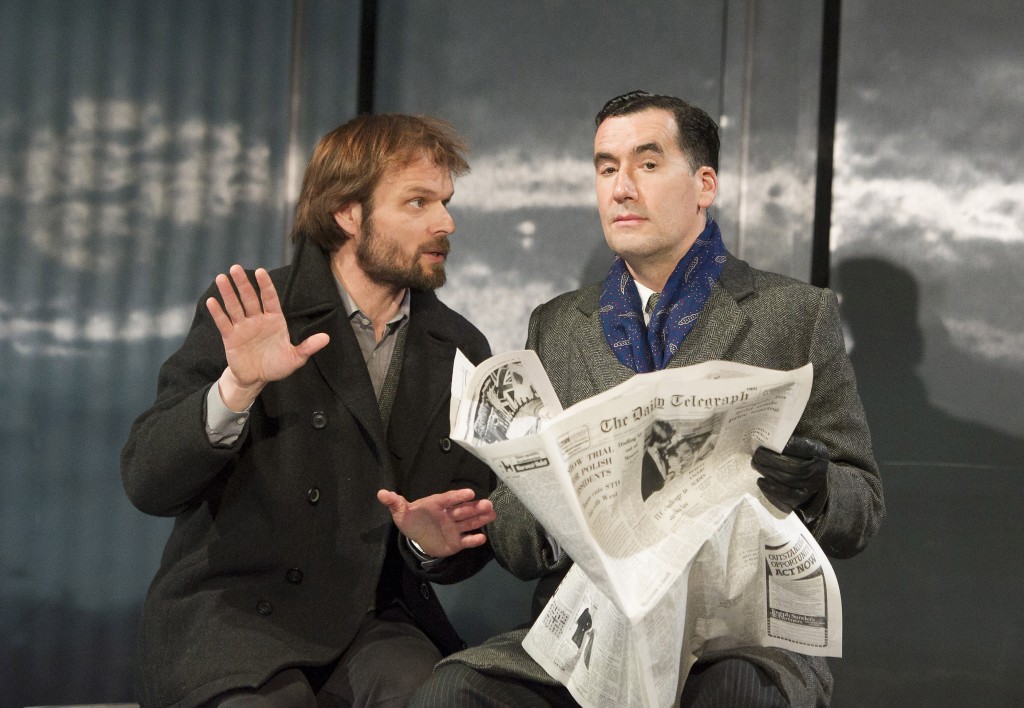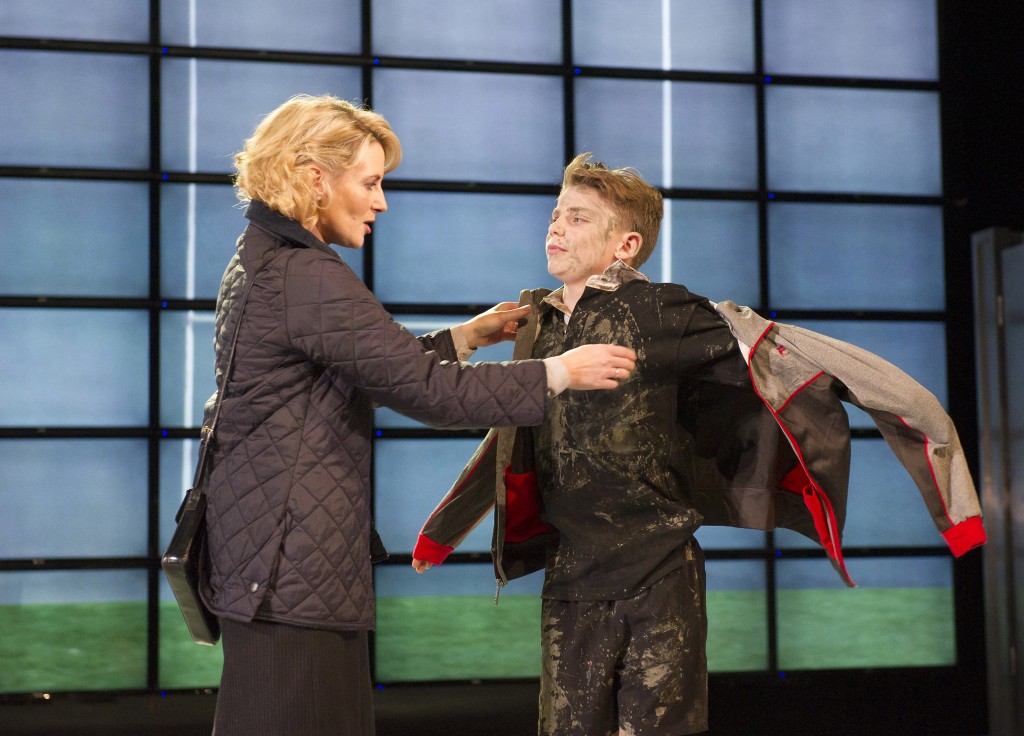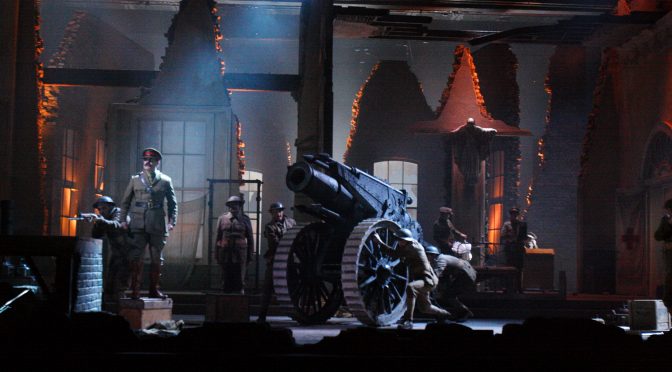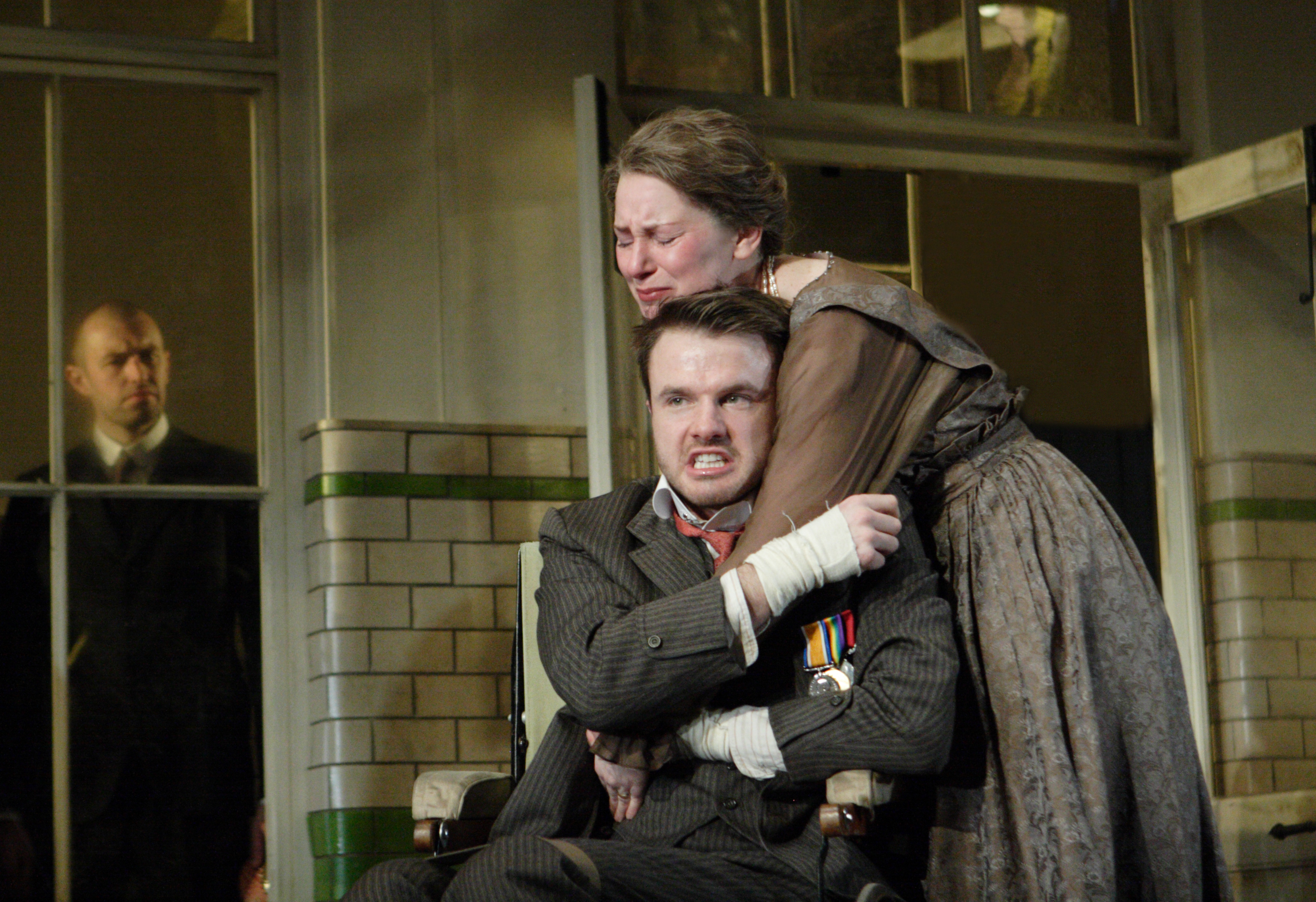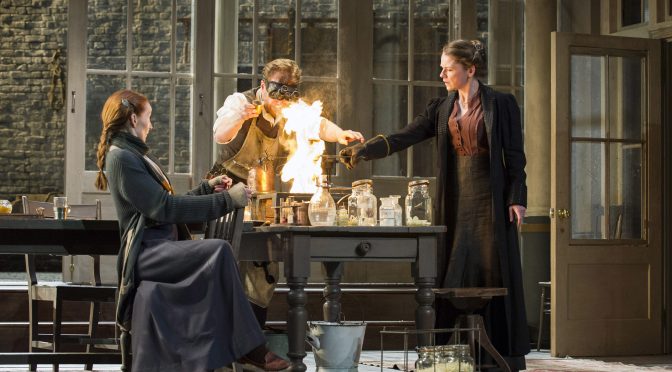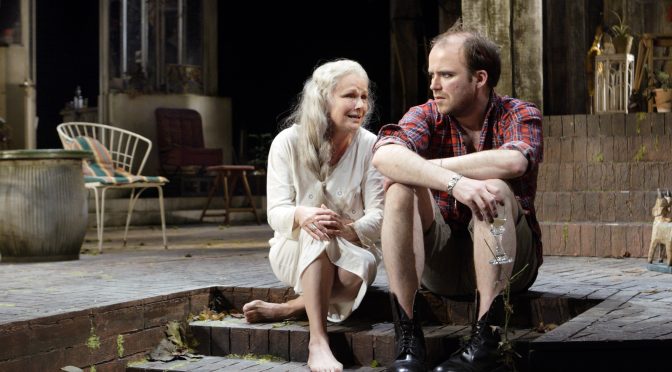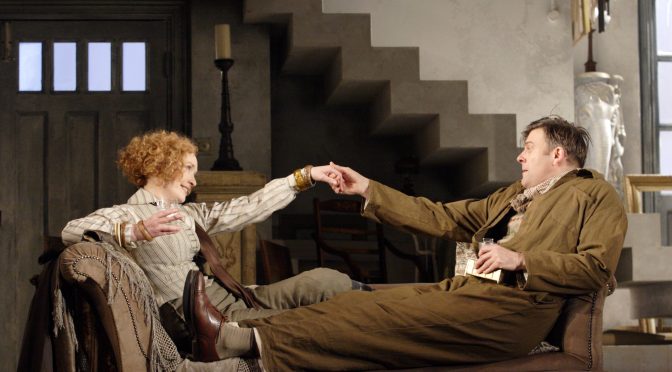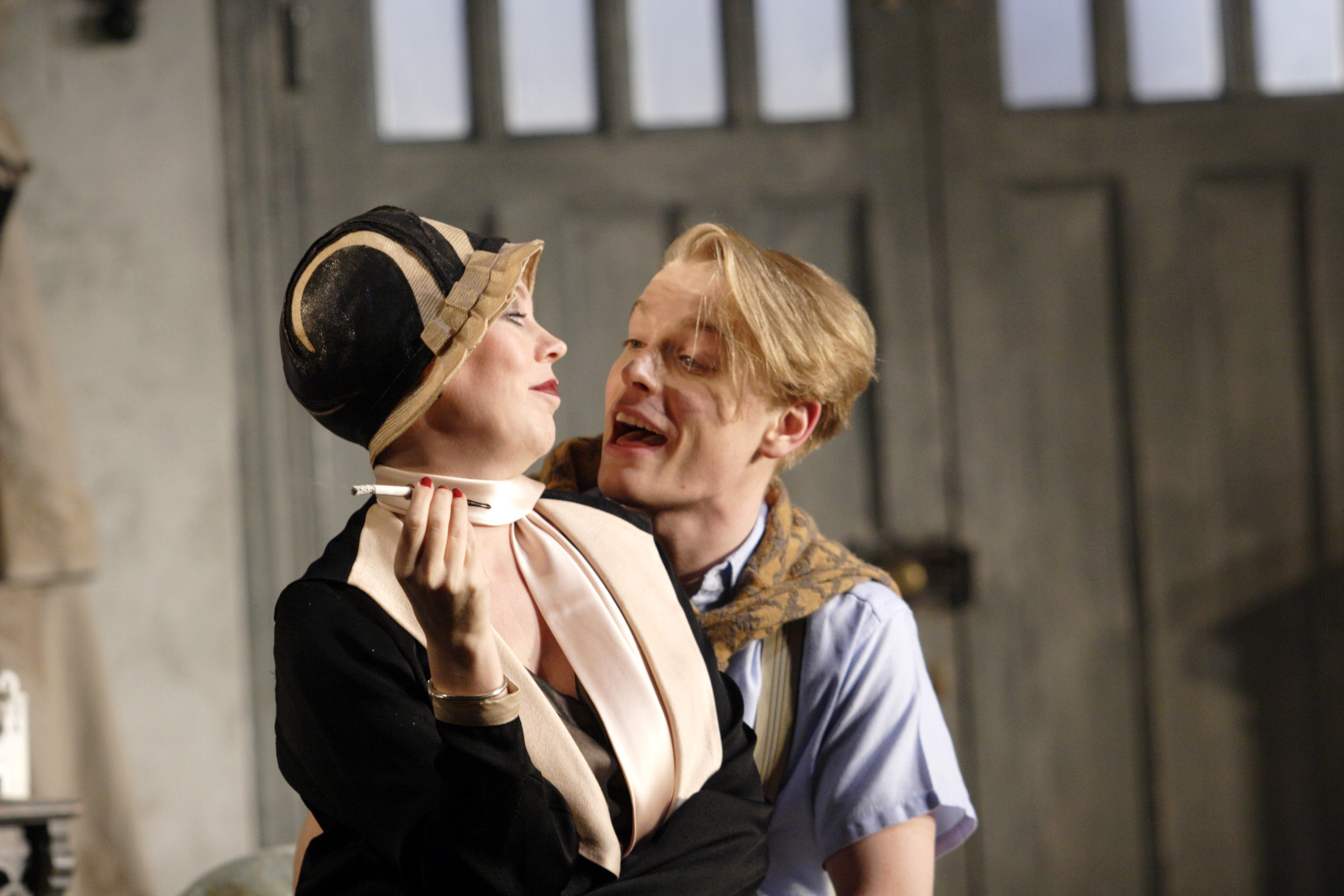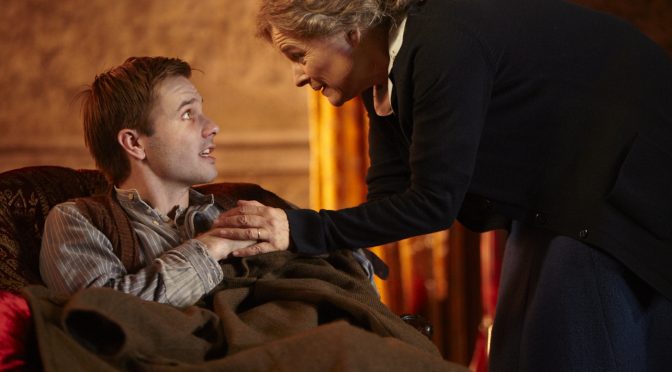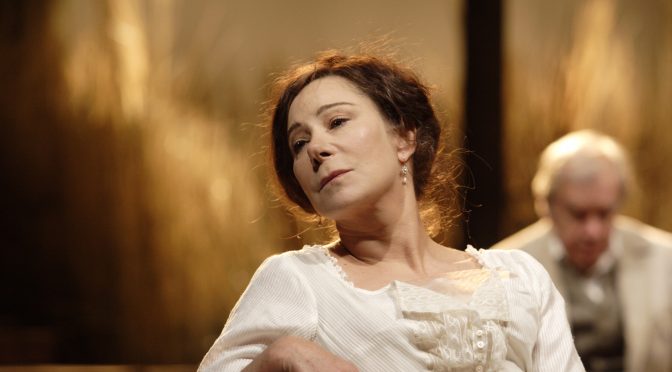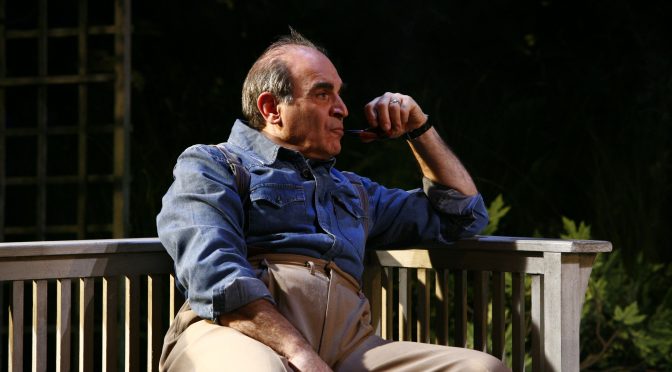The history and politics of the Indian Partition may be messy as well as tragic, but this play about the five weeks leading up to independence by Howard Benton, first seen in 2014, is a neat one. The “impossible task” of dividing a subcontinent and the creation of Pakistan is made into a traditional, efficient and fascinating drama.
The sensible move is to make such a global event a personal story, focusing on Cyril Radcliffe the judge who literally drew the lines on the map. It makes a starring role that (the sadly late) Tom Beard shines with and gives the audience an effective focus. Beard makes a fine narrator with a character that’s engaging and self-deprecating. There’s a believable touch of ego behind a likeable man. That this unusual innocent abroad knows “bugger all about India” is historically awful, but it endears him as a dramatic character. As pressure mounts Beard gets better and better, showing Radcliffe’s vulnerability and determination. As it dawns on him that that he is a “patsy”, and a lonely one at that, we are shown an honourable man it is hard not to feel for.
There are problems with the other characters – a collection of famous historical figures – that the cast struggles with valiantly. While the future Pakistani leader Muhammad Ali Jinnah (Silas Carson, pictured top) comes across as too manic, Indian’s first Prime Minister Jawaharlal Nehru is too much the consummate politician. Louis Mountbatten, last Viceroy of India, and his wife are given a lot of work to do and, while Andrew Havill and Lucy Black give strong performances, it’s difficult to care about their characters. The staff helping these (too self-consciously) political giants prove more interesting: there is strong work from Nikesh Patel and Brendan Patricks, whose characters work for Radcliffe but have partisan agendas and follow their own consciences.
Benton generally keeps anecdote to a minimum with some surprisingly light touches. With Howard Davies’ skilful direction, the action is clear and interest never flags. Davies also excels at creating a sense of tension with minimal staging or effects. The only slip comes with Radcliffe’s reading of the Bhagavad Gita, a potentially interesting thread that seems bungled, with a brief appearance by Krishna himself.
Understandably, Drawing the Line struggles for a conclusion. The aim of an “honourable end to Empire”, given hindsight, can’t create much tension. But Brenton isn’t scared of scandal or conspiracy and he uses both well. There’s the militant Gandhi and the Mountbattens’ private lives to spice things up. How much both really influenced or could have changed events seems open questions: flippant as both titbits may appear, they make for good theatre.
Available until 19 April 2020
Photos by Catherine Ashmore

